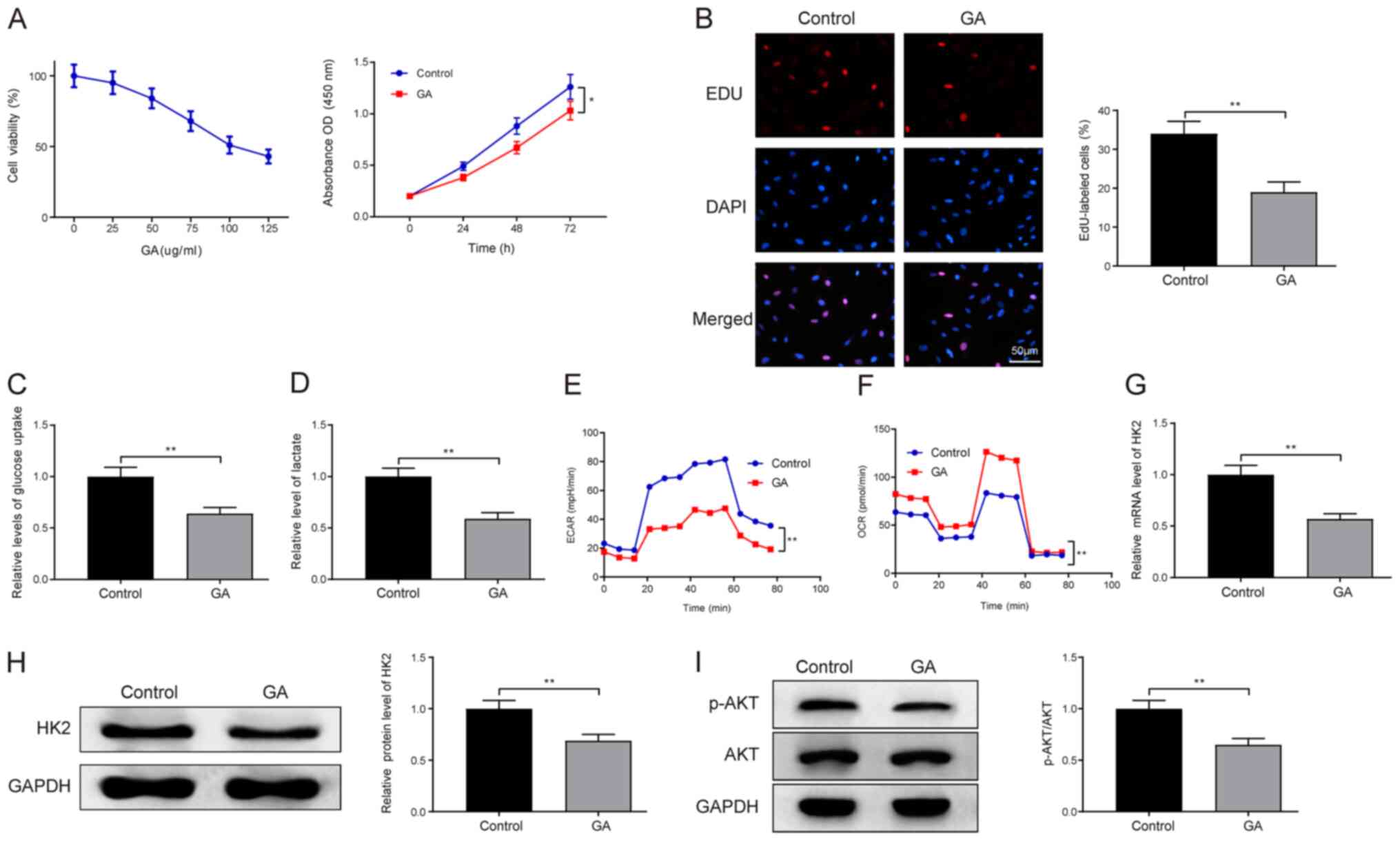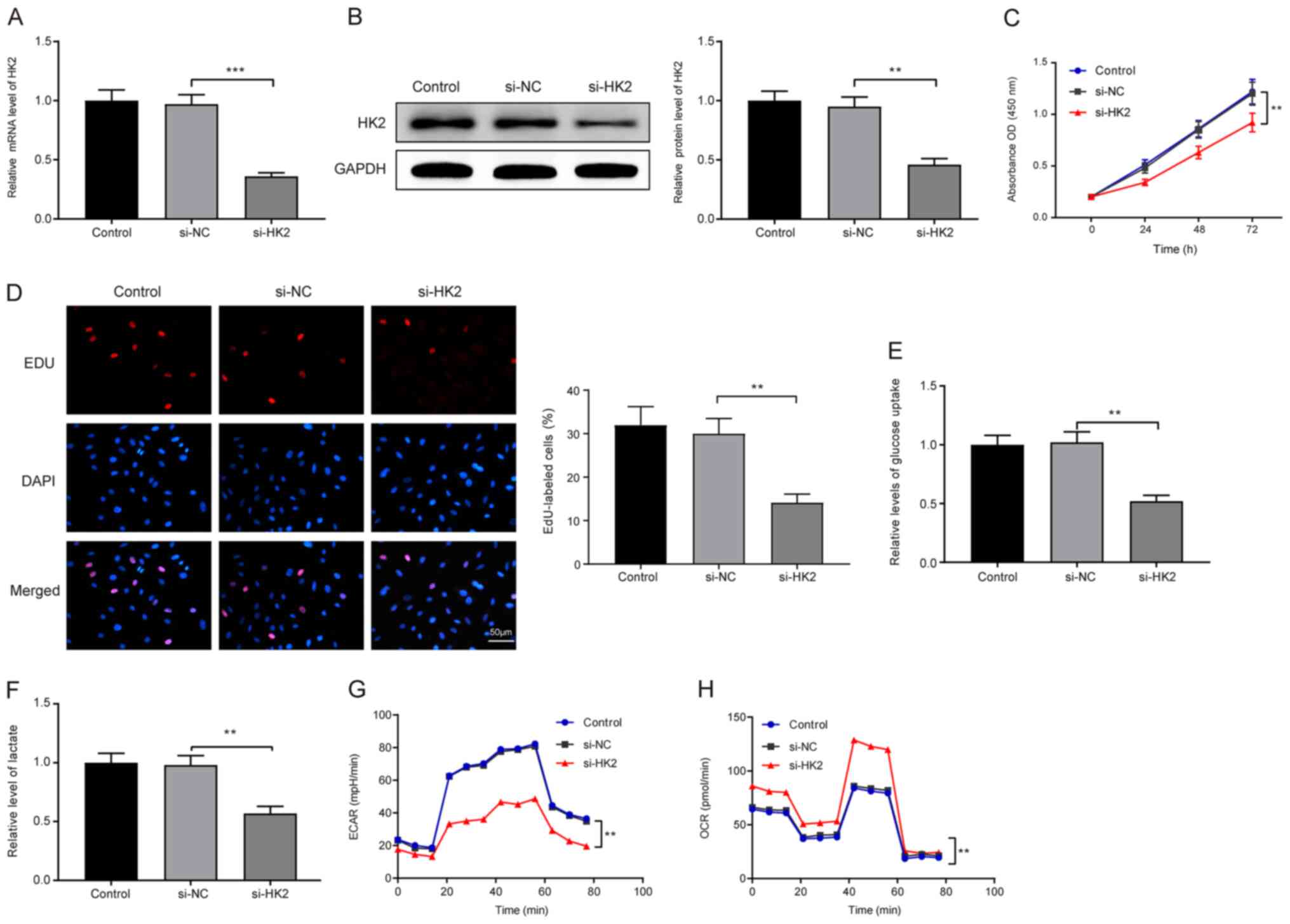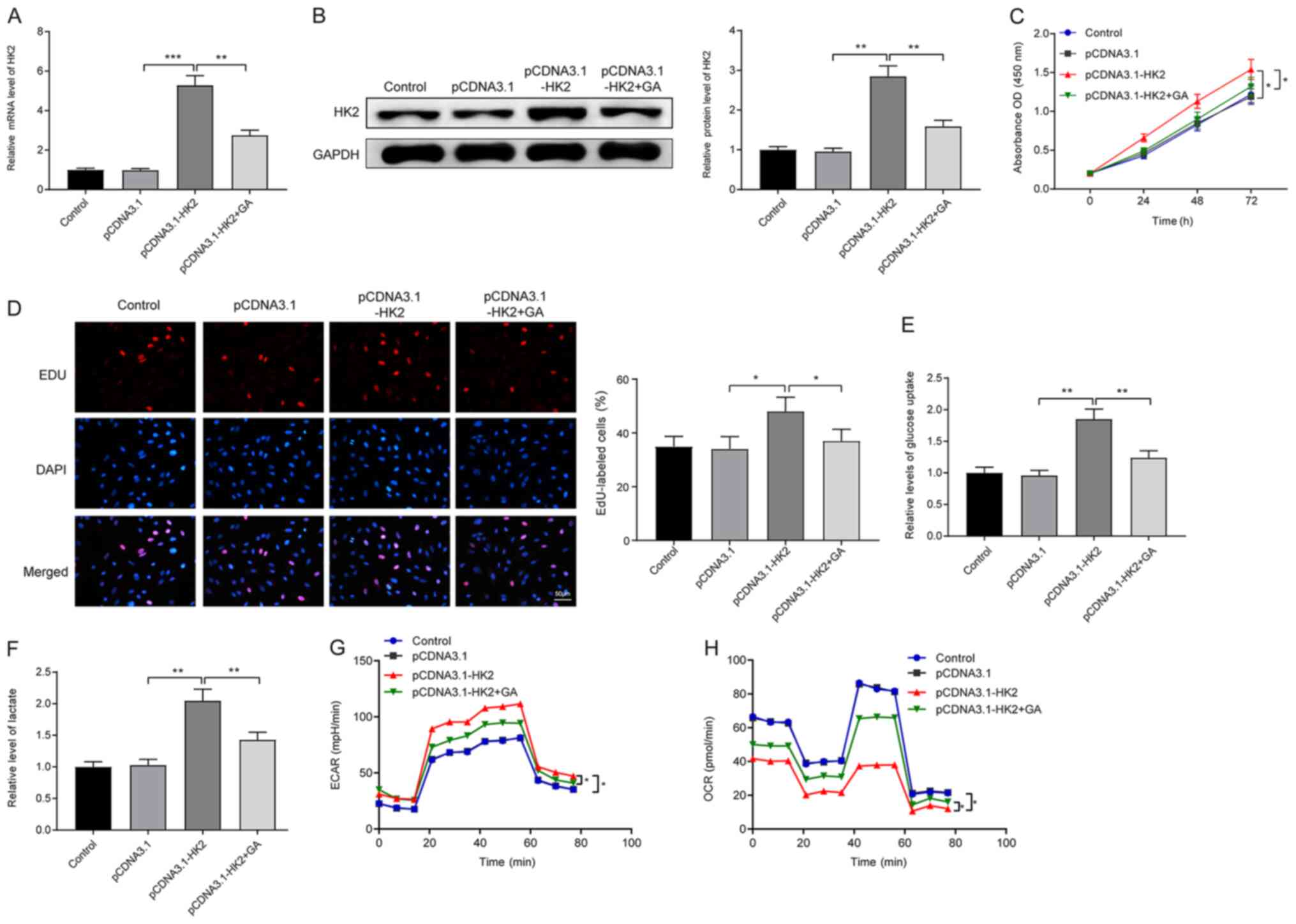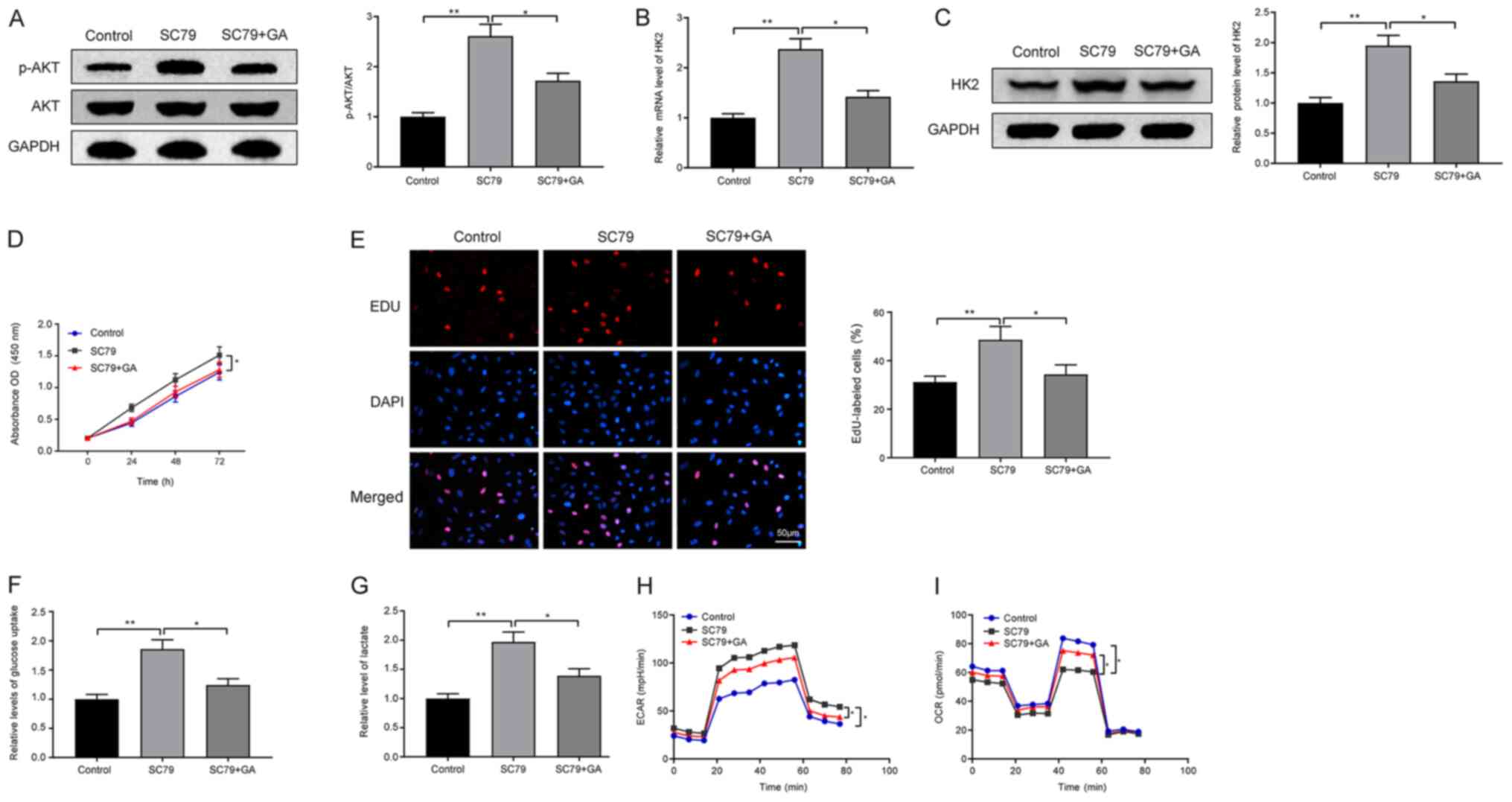|
1
|
Anwanwan D, Singh SK, Singh S, Saikam V
and Singh R: Challenges in liver cancer and possible treatment
approaches. Biochim Biophys Acta Rev Cancer. 1873:1883142020.
View Article : Google Scholar : PubMed/NCBI
|
|
2
|
Salvatore M, Jeon J and Meza R: Changing
trends in liver cancer incidence by race/ethnicity and sex in the
US: 1992–2016. Cancer Causes Control. 30:1377–1388. 2019.
View Article : Google Scholar : PubMed/NCBI
|
|
3
|
Pittala S, Krelin Y and Shoshan-Barmatz V:
Targeting Liver Cancer and Associated Pathologies in Mice with a
Mitochondrial VDAC1-Based Peptide. Neoplasia. 20:594–609. 2018.
View Article : Google Scholar : PubMed/NCBI
|
|
4
|
Tran KT, McMenamin UC, Coleman HG,
Cardwell CR, Murchie P, Iversen L, Lee AJ and Thrift AP: Statin use
and risk of liver cancer: Evidence from two population-based
studies. Int J Cancer. 146:1250–1260. 2020. View Article : Google Scholar : PubMed/NCBI
|
|
5
|
Guo Z, Zhou Y, Yang J and Shao X:
Dendrobium candidum extract inhibits proliferation and induces
apoptosis of liver cancer cells by inactivating Wnt/β-catenin
signaling pathway. Biomed Pharmacother. 110:371–379. 2019.
View Article : Google Scholar : PubMed/NCBI
|
|
6
|
Nie H, Li J, Yang XM, Cao QZ, Feng MX, Xue
F, Wei L, Qin W, Gu J, Xia Q, et al: Mineralocorticoid receptor
suppresses cancer progression and the Warburg effect by modulating
the miR-338-3p-PKLR axis in hepatocellular carcinoma. Hepatology.
62:1145–1159. 2015. View Article : Google Scholar : PubMed/NCBI
|
|
7
|
Xu F, Yan JJ, Gan Y, Chang Y, Wang HL, He
XX and Zhao Q: miR-885-5p Negatively Regulates Warburg Effect by
Silencing Hexokinase 2 in Liver Cancer. Mol Ther Nucleic Acids.
18:308–319. 2019. View Article : Google Scholar : PubMed/NCBI
|
|
8
|
Zhou Y, Zheng X, Lu J, Chen W, Li X and
Zhao L: Ginsenoside 20(S)-Rg3 Inhibits the Warburg Effect Via
Modulating DNMT3A/miR-532-3p/HK2 Pathway in Ovarian Cancer Cells.
Cell Physiol Biochem. 45:2548–2559. 2018. View Article : Google Scholar : PubMed/NCBI
|
|
9
|
Lin G, Wu Y, Cai F, Li Z, Su S, Wang J,
Cao J and Ma L: Matrine Promotes Human Myeloid Leukemia Cells
Apoptosis Through Warburg Effect Mediated by Hexokinase 2. Front
Pharmacol. 10:10692019. View Article : Google Scholar : PubMed/NCBI
|
|
10
|
Jin F, Wang Y, Zhu Y, Li S, Liu Y, Chen C,
Wang X, Zen K and Li L: The miR-125a/HK2 axis regulates cancer cell
energy metabolism reprogramming in hepatocellular carcinoma. Sci
Rep. 7:30892017. View Article : Google Scholar : PubMed/NCBI
|
|
11
|
Kong ZL, Kuo HP, Johnson A, Wu LC and
Chang KLB: Curcumin-Loaded Mesoporous Silica Nanoparticles Markedly
Enhanced Cytotoxicity in Hepatocellular Carcinoma Cells. Int J Mol
Sci. 20:202019. View Article : Google Scholar
|
|
12
|
Zhang P, Wang Q, Lin Z, Yang P, Dou K and
Zhang R: Berberine Inhibits Growth of Liver Cancer Cells by
Suppressing Glutamine Uptake. OncoTargets Ther. 12:11751–11763.
2019. View Article : Google Scholar
|
|
13
|
Liang B, Guo XL, Jin J, Ma YC and Feng ZQ:
Glycyrrhizic acid inhibits apoptosis and fibrosis in
carbon-tetrachloride-induced rat liver injury. World J
Gastroenterol. 21:5271–5280. 2015. View Article : Google Scholar : PubMed/NCBI
|
|
14
|
Cao ZY, Liu YZ, Li JM, Ruan YM, Yan WJ,
Zhong SY, Zhang T, Liu LL, Wu R, Wang B, et al: Glycyrrhizic acid
as an adjunctive treatment for depression through
anti-inflammation: A randomized placebo-controlled clinical trial.
J Affect Disord. 265:247–254. 2020. View Article : Google Scholar : PubMed/NCBI
|
|
15
|
Li JY, Cao HY, Liu P, Cheng GH and Sun MY:
Glycyrrhizic acid in the treatment of liver diseases: Literature
review. BioMed Res Int. 2014:8721392014.PubMed/NCBI
|
|
16
|
Livak KJ and Schmittgen TD: Analysis of
relative gene expression data using real-time quantitative PCR and
the 2(-Delta Delta C(T)) Method. Methods. 25:402–408. 2001.
View Article : Google Scholar : PubMed/NCBI
|
|
17
|
Lee NCW, Carella MA, Papa S and Bubici C:
High Expression of Glycolytic Genes in Cirrhosis Correlates With
the Risk of Developing Liver Cancer. Front Cell Dev Biol.
6:1382018. View Article : Google Scholar : PubMed/NCBI
|
|
18
|
Wang Z, Deng M, Liu Z and Wu S:
Hypoxia-induced miR-210 promoter demethylation enhances
proliferation, autophagy and angiogenesis of schwannoma cells.
Oncol Rep. 37:3010–3018. 2017. View Article : Google Scholar : PubMed/NCBI
|
|
19
|
Guo W, Qiu Z, Wang Z, Wang Q, Tan N, Chen
T, Chen Z, Huang S, Gu J, Li J, et al: miR-199a-5p is negatively
associated with malignancies and regulates glycolysis and lactate
production by targeting hexokinase 2 in liver cancer. Hepatology.
62:1132–1144. 2015. View Article : Google Scholar : PubMed/NCBI
|
|
20
|
Jiao L, Zhang HL, Li DD, Yang KL, Tang J,
Li X, Ji J, Yu Y, Wu RY, Ravichandran S, et al: Regulation of
glycolytic metabolism by autophagy in liver cancer involves
selective autophagic degradation of HK2 (hexokinase 2). Autophagy.
14:671–684. 2018. View Article : Google Scholar : PubMed/NCBI
|
|
21
|
Zhuang X, Chen Y, Wu Z, Xu Q, Chen M, Shao
M, Cao X, Zhou Y, Xie M, Shi Y, et al: Mitochondrial miR-181a-5p
promotes glucose metabolism reprogramming in liver cancer by
regulating the electron transport chain. Carcinogenesis.
41:972–983. 2020. View Article : Google Scholar : PubMed/NCBI
|
|
22
|
Zhang H, Du X, Sun TT, Wang CL, Li Y and
Wu SZ: Lectin PCL inhibits the Warburg effect of PC3 cells by
combining with EGFR and inhibiting HK2. Oncol Rep. 37:1765–1771.
2017. View Article : Google Scholar : PubMed/NCBI
|
|
23
|
Khan R, Rehman MU, Khan AQ, Tahir M and
Sultana S: Glycyrrhizic acid suppresses
1,2-dimethylhydrazine-induced colon tumorigenesis in Wistar rats:
Alleviation of inflammatory, proliferation, angiogenic, and
apoptotic markers. Environ Toxicol. 33:1272–1283. 2018. View Article : Google Scholar : PubMed/NCBI
|
|
24
|
He SQ, Gao M, Fu YF and Zhang YN:
Glycyrrhizic acid inhibits leukemia cell growth and migration via
blocking AKT/mTOR/STAT3 signaling. Int J Clin Exp Pathol.
8:5175–5181. 2015.PubMed/NCBI
|
|
25
|
Hou S, Zheng F, Li Y, Gao L and Zhang J:
The protective effect of glycyrrhizic acid on renal tubular
epithelial cell injury induced by high glucose. Int J Mol Sci.
15:15026–15043. 2014. View Article : Google Scholar : PubMed/NCBI
|
|
26
|
Liu W, Jing ZT, Xue CR, Wu SX, Chen WN,
Lin XJ and Lin X: PI3K/AKT inhibitors aggravate death
receptor-mediated hepatocyte apoptosis and liver injury. Toxicol
Appl Pharmacol. 381:1147292019. View Article : Google Scholar : PubMed/NCBI
|
|
27
|
Fresno Vara JA, Casado E, de Castro J,
Cejas P, Belda-Iniesta C and González-Barón M: PI3K/Akt signalling
pathway and cancer. Cancer Treat Rev. 30:193–204. 2004. View Article : Google Scholar : PubMed/NCBI
|
|
28
|
Hu F, He Z, Sun C and Rong D: Knockdown of
GRHL2 inhibited proliferation and induced apoptosis of colorectal
cancer by suppressing the PI3K/Akt pathway. Gene. 700:96–104. 2019.
View Article : Google Scholar : PubMed/NCBI
|
|
29
|
Liu J, Pan C, Guo L, Wu M, Guo J, Peng S,
Wu Q and Zuo Q: A new mechanism of trastuzumab resistance in
gastric cancer: MACC1 promotes the Warburg effect via activation of
the PI3K/AKT signaling pathway. J Hematol Oncol. 9:762016.
View Article : Google Scholar : PubMed/NCBI
|


















